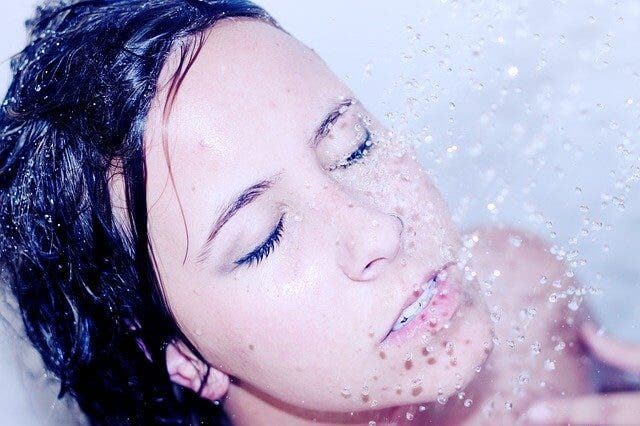On several occasions we have heard that taking a warm bath before going to bed contributes to a better sleep. However, the reasons are unknown. So this time we tell you why it is useful and when is the best time to do it. Taking a warm bath before going to bed is one of the recommended techniques for a better sleep. Although it is not a solution to chronic problems such as insomnia, it does seem to be a good adjuvant to induce rest and improve sleep quality.

Taking a hot bath for better sleep: why does it help?
Taking a bath with hot water before sleeping helps to change the internal temperature and, thus, promotes rest. To reach these conclusions, the researchers reviewed 5,322 studies and employed at least a dozen through more robust methodologies.
Taking a hot bath at a temperature between 40 and 42 ° C, about 90 minutes before going to bed, contributes to people sleeping better. Specifically, it seems to help you fall asleep about 10 minutes faster than usual.
These findings were possible after analyzing the effects of “passive water-based body warming” on various sleep indicators such as:
- Sleep onset latency, which is the time it takes to go from full wakefulness to sleep.
- Sleep efficiency.
- Subjective quality of sleep.
Body temperature and sleep
The scientific research over time have established that circadian rhythms regulate functions such as sleep and core temperature of the body. Thus, it has also been determined that body temperature increases 2 or 3 degrees more in the late afternoon or evening. On the other hand, during sleep it is lower.
When it is time to go to bed, the average individual suffers a drop of 3 to 6 ° C in their body temperature. The lowest level occurs between the middle and later periods of sleep. Once it is time to wake up, the temperature begins to recover.
Paradoxically, it seems that taking a hot bath cools the body by stimulating blood circulation from the inner core to the periphery, that is, the hands and feet. When this occurs, the pineal gland indicates the production of melatonin and it is then that it induces sleep.
Some will think … why hot and not cold water? Well, although at first glance it seems more logical to use cold water to lower the temperature, the mechanism is not the same. Cold water brings the body into a fight or flight response, increasing alertness.
Therefore, the recommendation is simple: a shower with hot water, for around 10 minutes, 90 minutes before going to bed. Of course, since the evidence is still limited, it is important to exercise caution.
What else can we do to sleep better?
As we have seen, taking a hot shower can be an option when sleep difficulties appear. However, there are other recommendations that we can take into account to contribute to a restful sleep. This may include:
- Maintain a regular sleep schedule. That is, having the same time to go to bed and wake up, even on weekends.
- Avoid long naps in the afternoon. A 20 or 30 minute nap is enough. In case of having nighttime sleep problems, it is better to avoid them.
- To do physical exercise. Both moderate and vigorous exercise have beneficial effects on rest.
- Ensure a comfortable and quiet environment in the room. It is important that the bed is clean and comfortable. In addition, distracting elements such as mobile devices, televisions, computers, etc. must be avoided.
- Avoid the consumption of stimulants. Like alcohol, tobacco, and caffeine.
- Try relaxing activities. It can be reading a book, meditating, doing breathing exercises, listening to sounds from nature, among others.
Finally, it is worth remembering that, in the face of continuous difficulties in sleeping, or insomnia, it is best to go to the professional. A specialist in sleep disorders can help establish the origin of the problem and the most appropriate treatments.















